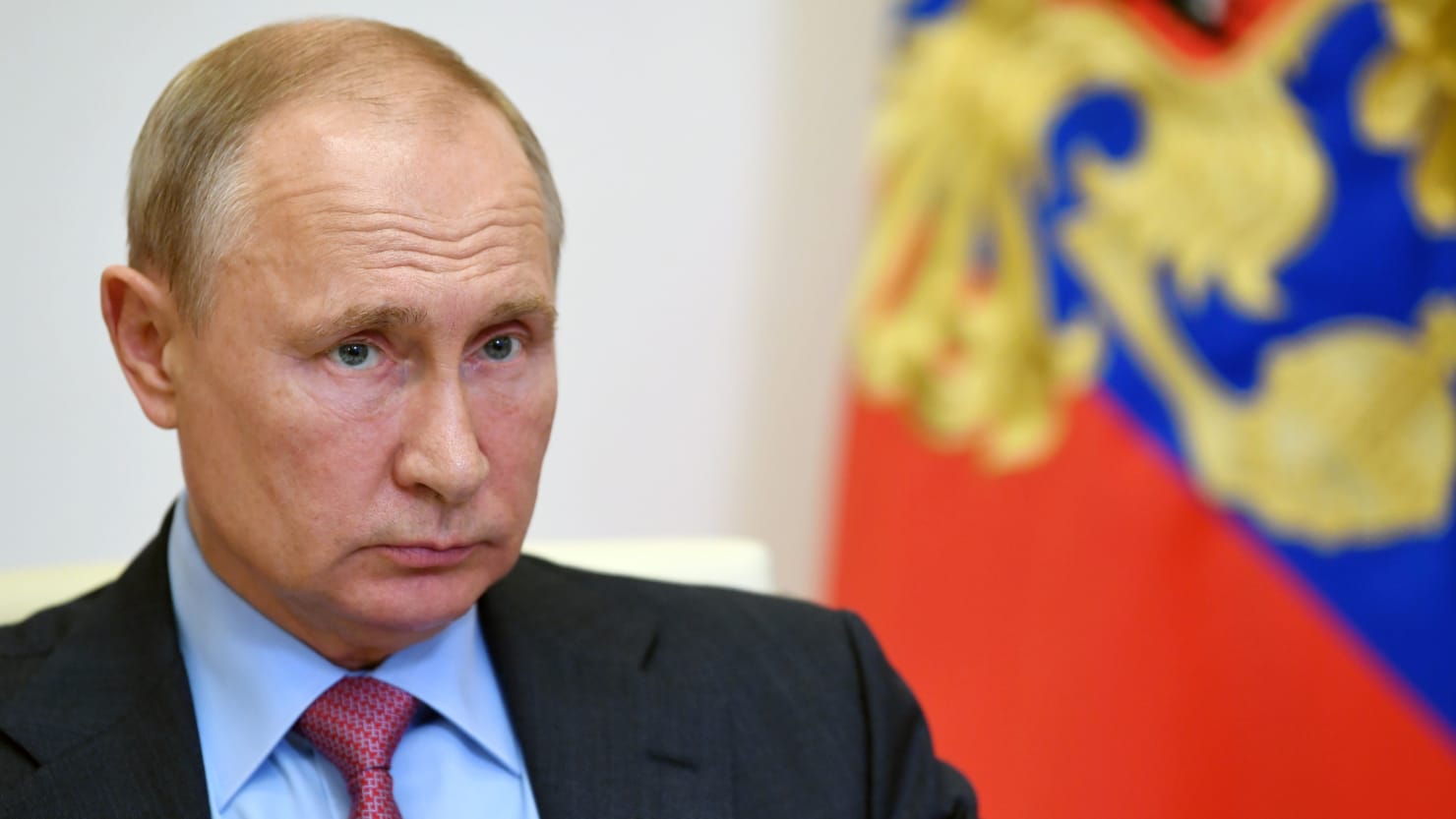Putin’s Troll Farm Busted Running Sprawling Network of Facebook Pages

Facebook booted three troll networks linked to Russian intelligence and the St. Petersburg-based troll farm involved in meddling in the 2016 election.
Nathan Gleicher, Facebook’s head of security, told reporters in a press conference that the three networks mainly focused on audiences and issues outside of the U.S. presidential election but that the company had suspended them now out of an abundance of caution because they “could pivot to support a hack-and-leak operation” in the future.
While Facebook hasn’t seen any evidence that Russia’s intelligence services planned to use the suspended networks to amplify hacked content in a hack-and-leak operation, the potential remained an “important risk we should all be watching for in the weeks to come,” according to Gleicher.
The three networks used Facebook primarily as a means to amplify content from off-platform websites, and to find and recruit authentic and unwitting people to help hype their propaganda, many of them journalists.
The first network, linked by Facebook to Russian military intelligence, consisted of a cluster of “214 Facebook accounts, 35 Pages, 18 Groups and 34 Instagram accounts,” according to the company, and focused on the “Syrian civil war, Turkish domestic politics, geopolitical issues in the Asia-Pacific region, NATO, the war in Ukraine, and politics in the Baltics, Georgia, Armenia, Ukraine, Russia, Belarus, and the US.”
Another smaller network involved 5 Facebook accounts, a page, a group, and three Instagram accounts centered around a fictitious Turkey-based think tank dubbed “United World International.” Facebook found the group after a tip from the FBI and linked the group to previous activity associated with the Internet Research Agency (IRA). Gleicher told reporters that the company chose to attribute the network to previous IRA activity because it’s “not clear whether today if the IRA is still active or if it is in what form.”
The final network centered around the Strategic Culture Foundation, a Moscow-based think tank that has long been suspected to be a front for Russian intelligence, and similar outlets. In a State Department report released in August, the department’s Global Engagement Center described the Strategic Culture Foundation as “an online journal registered in Russia that is directed by Russia’s Foreign Intelligence Service (SVR) and closely affiliated with the Russian Ministry of Foreign Affairs.”
Facebook appeared to agree with that assessment and described the Facebook assets used by the Strategic Culture Foundation to be linked to Russian nationals, including “those associated with Russian intelligence services.”
Thursday’s move follows a similar announcement from Facebook in August when it suspended another Russian-linked disinformation effort after a tip from the FBI. Law enforcement told the social media company that PeaceData, a news site which purported to be a Romania-based publication focused on anti-corruption and human rights, was a Russian intelligence front. A subsequent Facebook investigation found that the company was linked to the Internet Research Agency, the St. Petersburg-based troll farm responsible for much of Russia’s 2016 election meddling.
Much like the networks suspended on Thursday, PeaceData relied on unwitting Western journalists in order to amplify their content. Trolls posing as PeaceData editors pitched left-leaning freelancers and encouraged them to re-publish content written for the site at other, more established outlets in an apparent bid to increase their name recognition and legitimacy.
According to a Washington Post report, the CIA has concluded that Russian President Vladimir Putin is “probably directing” an influence campaign to damage Vice President Joe Biden’s chances in the 2020 election. Earlier this month, the Treasury Department sanctioned Ukrainain member of parliament Andrii Derkach, who has been providing dirt on Biden’s son Hunter to a Republican-led Senate investigation, for “attempting to influence the U.S. electoral process.”
President Donald Trump and his aides, however, have tried to downplay the aggressive role that the intelligence community and other agencies say Russia is trying to play in the 2020 election.
Shortly after FBI Director Christopher Wray testified that Moscow was engaged in “very active efforts” to influence the election, Trump berated Wray in a tweet claiming, without evidence, that Beijing was far more involved in meddling. “But Chris, you don’t see any activity from China, even though it is a FAR greater threat than Russia, Russia, Russia,” he wrote.
It’s a claim that top Trump aides, including National Security Adviser Robert C O’Brien, Attorney General Bill Barr, and Director of National Intelligence John Ratcliffe have echoed but declined to substantiate.
tinyurlis.gdclck.ruulvis.netshrtco.de
